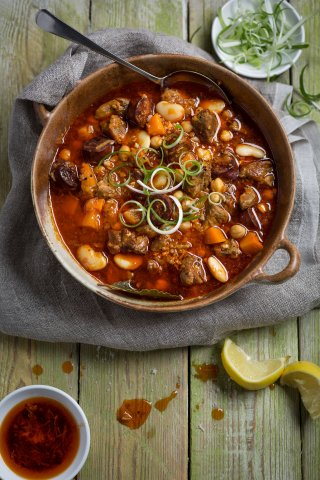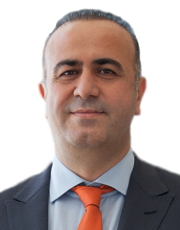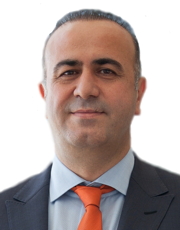An ancient group of crops is being reborn. 2016 has been declared the International Year of Pulses, and will celebrate the humble beans, peas, lentils and chickpeas that despite being part of one of the oldest crop groups to be farmed, have fallen out of fashion in some parts of the world and become marginalised in agricultural and development policies
For the last five years, poor monsoons have impacted pulse production. In addition, El Niño and other climate change impacts, subsidies on cereals over pulses, and lack of research budgets, have all taken their toll.
Yet pulses can be a major weapon in the fight against many of the most urgent challenges the global population faces, from malnutrition and hunger, to climate change, water scarcity and land degradation.
Pulses are what we call a “nutrient powerhouse”. They are packed with plant-based proteins, nutrients and amino acids, high in fibre, whilst being low in fat. This means they are ideal for boosting food and nutrition security in the developing world where 800 million people still suffer from hunger. Equally, they are important in the developed world where poor diets have lead to obesity and chronic diseases such as diabetes and heart conditions.
In addition to providing a nutrient dense, low cost and low fat source of protein and fibre, pulses are also good for the planet. With a unique ability to “fix” nitrogen from the atmosphere, pulses are able to directly draw nitrogen from the atmosphere and convert it into nutrients vital for plant growth. Growing pulses makes soils fertile, reducing the need for nitrogen fertilizer.
They are also a water efficient source of protein: pulses require between one tenth to half of the water used by other protein-rich foods. So farmers should be encouraged to add pulses into a crop rotation in order to improve their farm’s environmental stewardship.
Furthermore, pulses could play a role in reducing global food system risks brought about by overreliance on a few staple crops such as wheat, maize, rice, and create new investment opportunities.
During the International Year of Pulses, the United Nations and the Global Pulse Confederation will focus attention on the role pulses play in sustainable food production, and aim to heighten public awareness of their nutritional benefits. To that end, GPC and its more than twenty partners are organising events all over the world that will promote discussion and cooperation at the national, regional and global levels. It is already possible to access a recipe database featuring 50 national signature pulse dish recipes “the World’s Greatest Pulse Dishes”, as well as 300 general pulse recipes donated by Celebrity chefs, countries, organizations and individuals.

On January 6, 2016, the world celebrated pulses with Pulse Feast events. Around the world, people raised awareness of the health, nutrition and sustainability benefits of pulses for people, animals, and the planet. Pulse Feast was a celebration shared live and through social media with people eating beans, peas, lentils and chickpeas., #PulseFeast was a huge success, reaching 21 million people and having 142 events and meals, touching from ocean to ocean.
As a member of the FAO International Steering Committee for the International Year of Pulses, we, at the Global Pulse Federation, want to increase awareness and understanding of the challenges faced by pulse farmers, be they large-scale farms or small landholders. We have commissioned a research project that analyses the investment and research gaps for pulse productivity and sustainability. We have partnered with over 20 organisations, including governments, research bodies, NGOs and academics to improve pulse research, production and consumption, and will campaign for pulses to be prioritised in future agronomic research programs and placed at the heart of governments’ nutrition and food security strategies.
2016 is a time to move these crops back to the central role they require. We call for more funding for pulse breeding, more attention to research and innovation, and policies that provide consistent signals on the importance of pulses.
For more information: www.pulses.org / www.iyp2016.org / @LovePulses / #LovePulses / #IYP2016
Hakan Bahceci is the group CEO of Hakan Agro DMCC, a multinational agri-soft commodities supply company based in Dubai, UAE with processing facilities and offices in 26 countries. Hakan served as President of the Global Pulse Confederation. During his term, he advocated for the establishment of the International Year of Pulses. He is also the former President of the International Agri Food Network and Private Sector Mechanism at the UN Committee on World Food Security.



